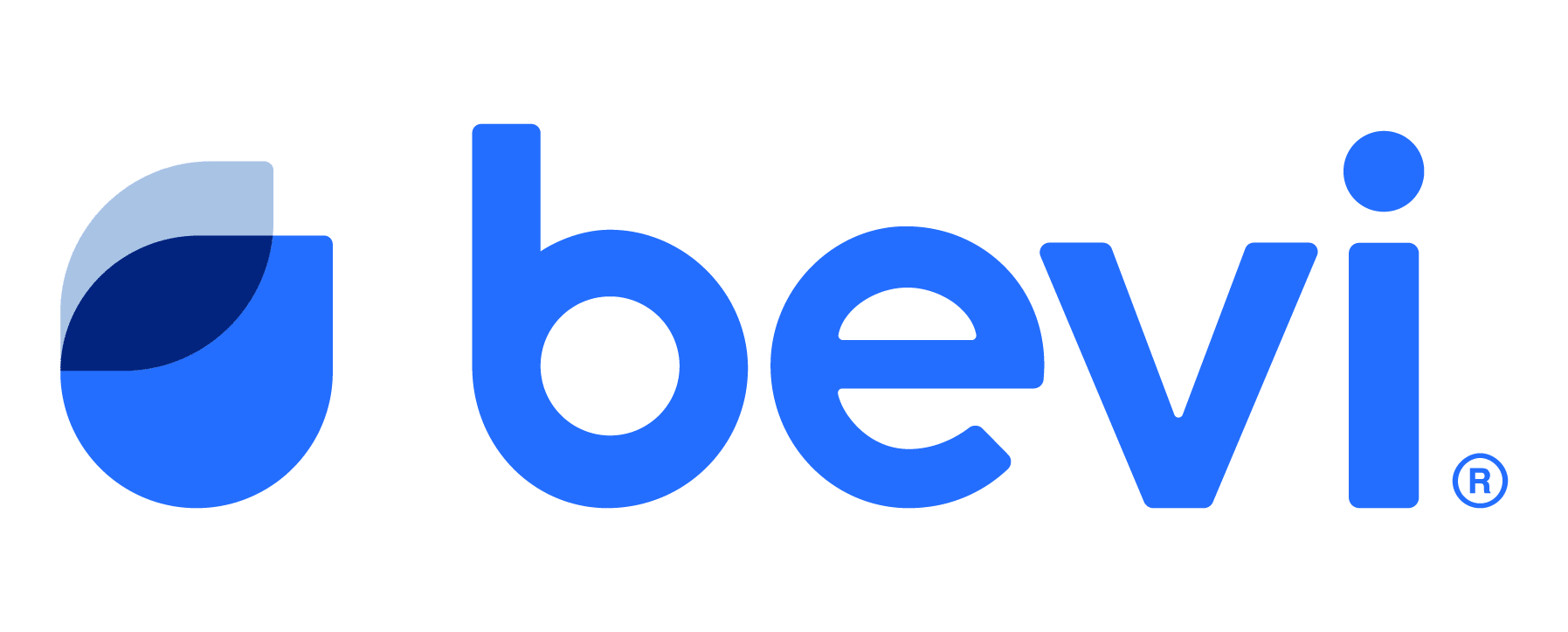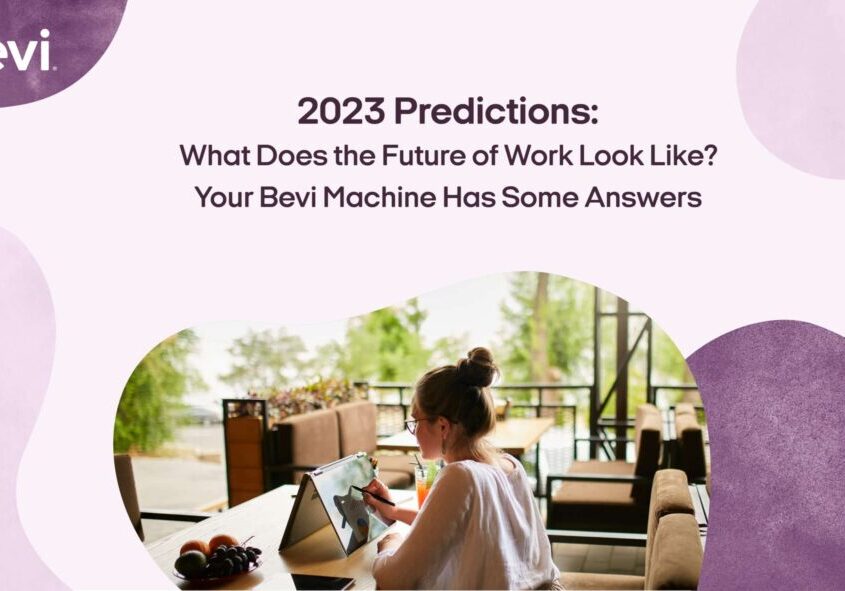Since the start of the pandemic, the traditional workplace has been turned upside down many times over. The Great Resignation, endless Zoom meetings, a looming recession, and massive layoffs. What will happen next?
We gathered outside research and pulled dispense data from thousands of Bevi machines currently installed in offices and commercial spaces throughout North America to understand one question: What does the future of work look like?
Turns out water coolers can tell you more than the latest office gossip. Here are the three biggest trends we see continuing as we enter 2023:
Prediction 1: Hybrid and flexible work are here to stay
The days of expecting employees to come into the office Monday through Friday appear to be firmly in the past. Instead of forcing employees back to the office full-time, businesses will continue to embrace hybrid models, looking for incentives to make the office more enjoyable when employees are there.
According to a McKinsey study, 52% of workers prefer a more flexible working model post-pandemic. Simply put, most employees are not interested in coming into the office five days a week anymore—and their Bevi machine usage patterns confirm it!
When you take a close look at machine dispense trends, it’s clear that people are working from home much more in general, with usage in residential apartment buildings reaching 121% of 2019 levels in September of 2022. Meanwhile, in-office usage has struggled to return to its pre-pandemic heights across a number of industries.
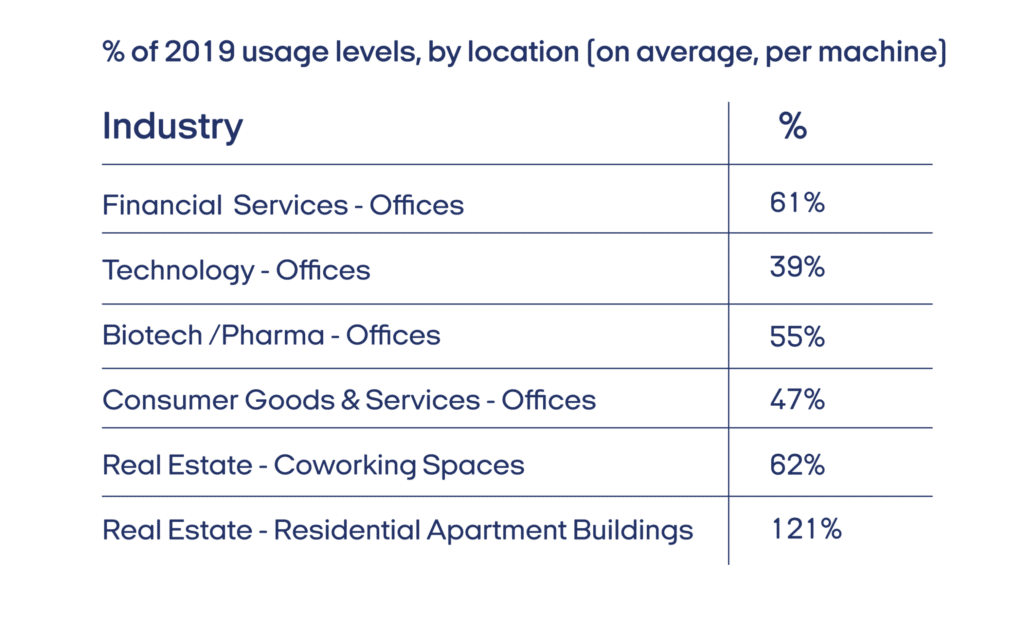
That said, while more time is being spent working from home, a consistent hybrid schedule is emerging, as Tuesdays-Thursdays are the most popular days to be in the office, with Finance and CPG leading the way on a trend that was already taking shape prior to the pandemic.
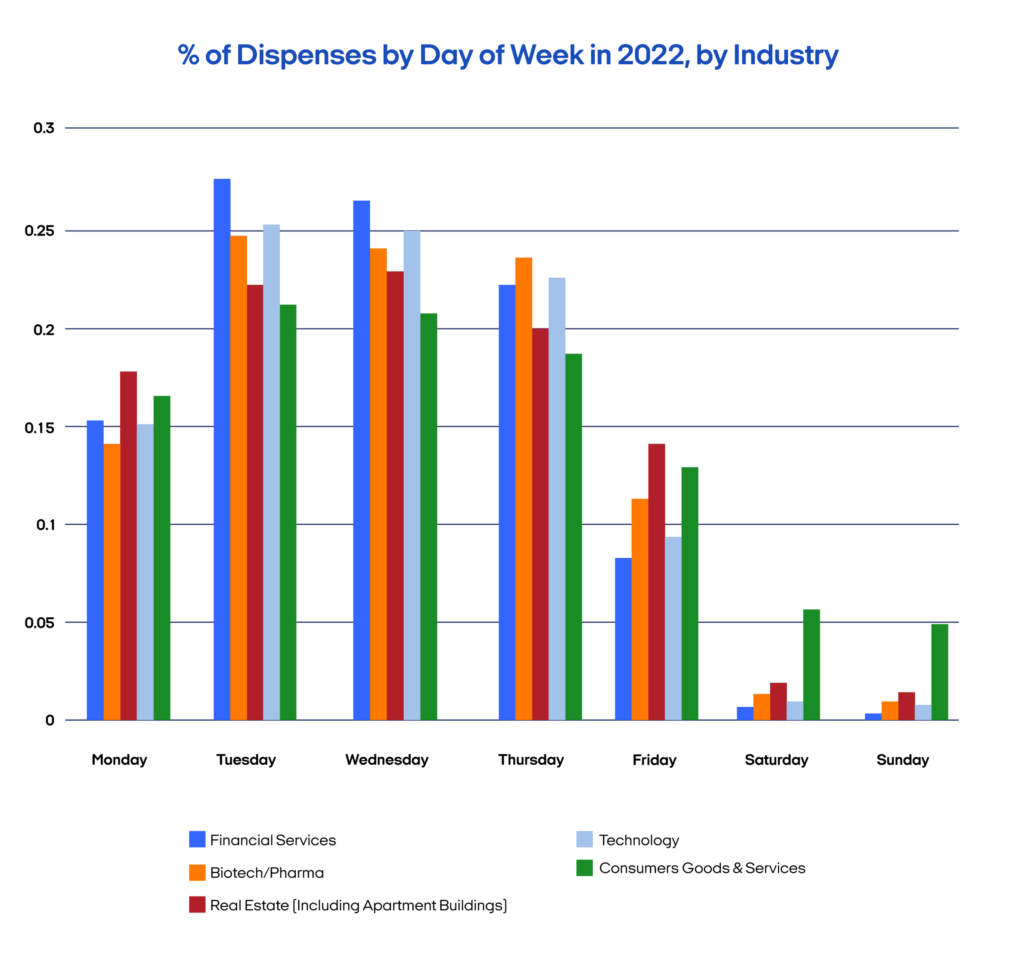
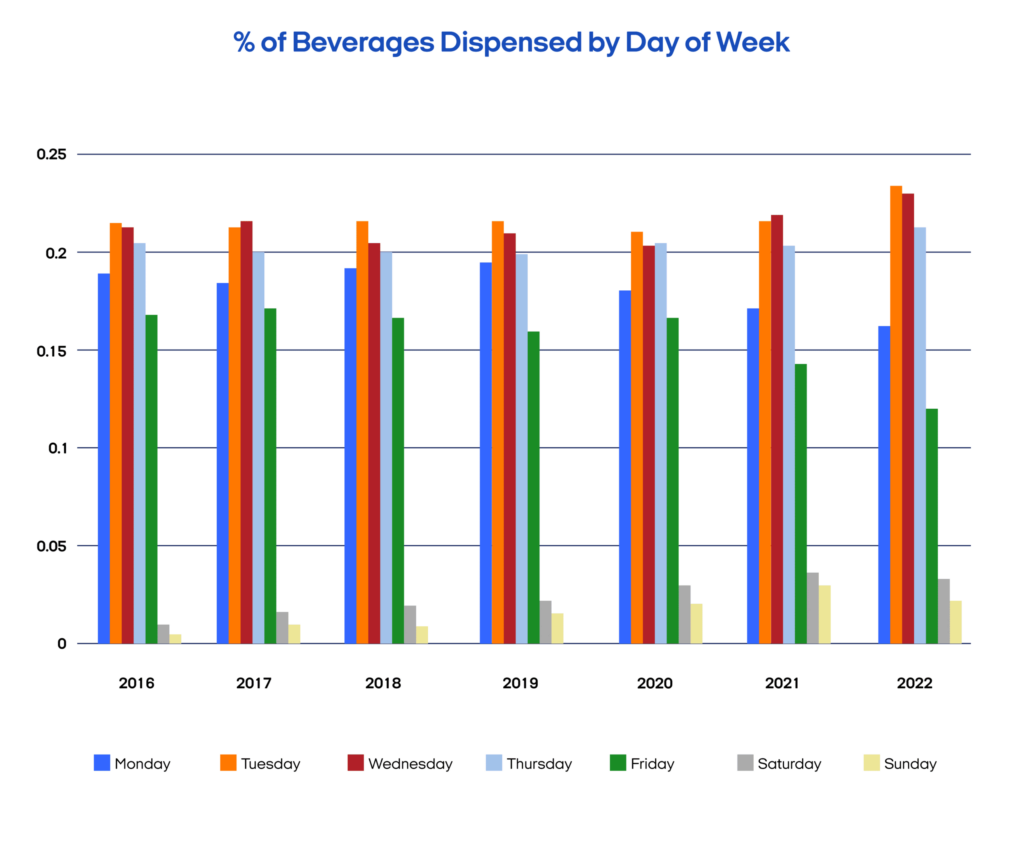
As we look ahead to 2023, it’s clear that businesses will continue to embrace a hybrid model that combines flexibility with facetime. Hybrid models and flexible work arrangements will remain to keep employee satisfaction high. When Bevi moved to a hybrid work model, Bevi’s CEO and Co-Founder, Sean Grundy, shared his thoughts on hybrid work.
“It’s important to get people back together at least two days a week, first and foremost, because I think friendship at work is important. When you actually genuinely care about the people you work with, I think you’re more motivated to do your job, and you go out of your way to help other people, especially people in other departments. Plus, work gets a lot easier, and it gets more fun. So I think it’s important to foster an environment where that friendship can happen.”
Even so, the onus will be on companies to create incentives to get employees excited about coming back into the office and fostering an environment they want to be in. This leads us to our next prediction…
Prediction 2: Employee happiness will be more important than ever
Why are employees not interested in coming back five days a week and instead spending that extra commute time doing the things they love? Because it makes them happy. And why would we want to go back to our old ways if it’s not bringing us joy?
In 2023, there will be an emphasis on workplace happiness, as many workers continue to prioritize their well-being more than they did pre-pandemic. Offering employee perks that support this mentality will become a vital component of attracting and retaining top talent.
A McKinsey study shows that 47% of employees are eager to see their organizations put a greater emphasis on well-being post-pandemic. Additionally, Glassdoor and Indeed’s Hiring and Workplace Trends report surveyed thousands of workers to understand what the work trends for 2023 look like. What they found is really telling:
“Nearly half of workers surveyed said that their expectation around happiness at work has increased in the last year, and 86% of those surveyed say that how they feel at work impacts how they feel at home. What’s more, Glassdoor and Indeed estimate that 90% of people believe that how we feel at work matters, but only 49% of people report their company is measuring happiness and well-being.”
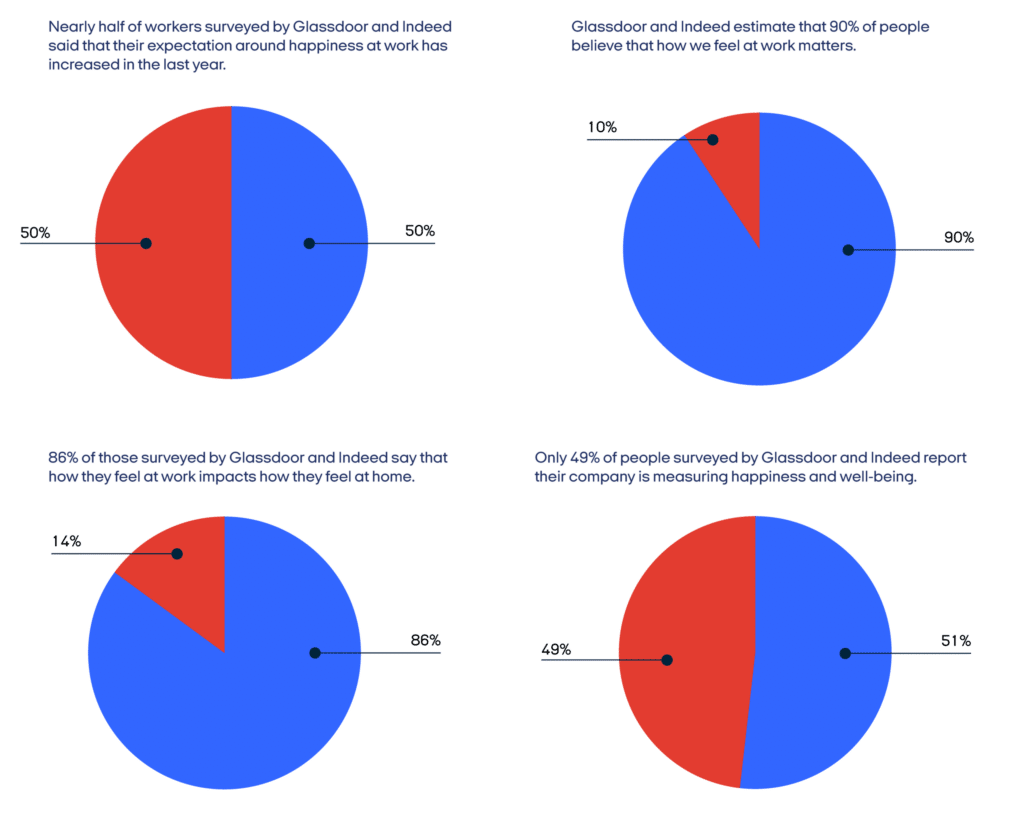
In the coming year, companies must consider offering perks to prioritize employee happiness if they want to remain competitive. Some examples include gym memberships, tuition reimbursement, healthy catered snacks, meals, and beverage options, on-site massages, therapy sessions, nap pods, and more.
Understanding, measuring, and taking action to maintain employee well-being and happiness will be crucial for attracting and retaining talent in the future.
And speaking of attracting talent in the future, our next prediction is closely related to this as well…
Prediction 3: Sustainable business practices are imperative
In 2023, businesses will experience greater demand for proof of sustainable practices from current and prospective employees, as well as stakeholders, partners, and customers. According to a new report from Handshake, a career resource platform, almost two-thirds of 1,800 respondents stated that they were more likely to apply to a job that committed to sustainable practices.
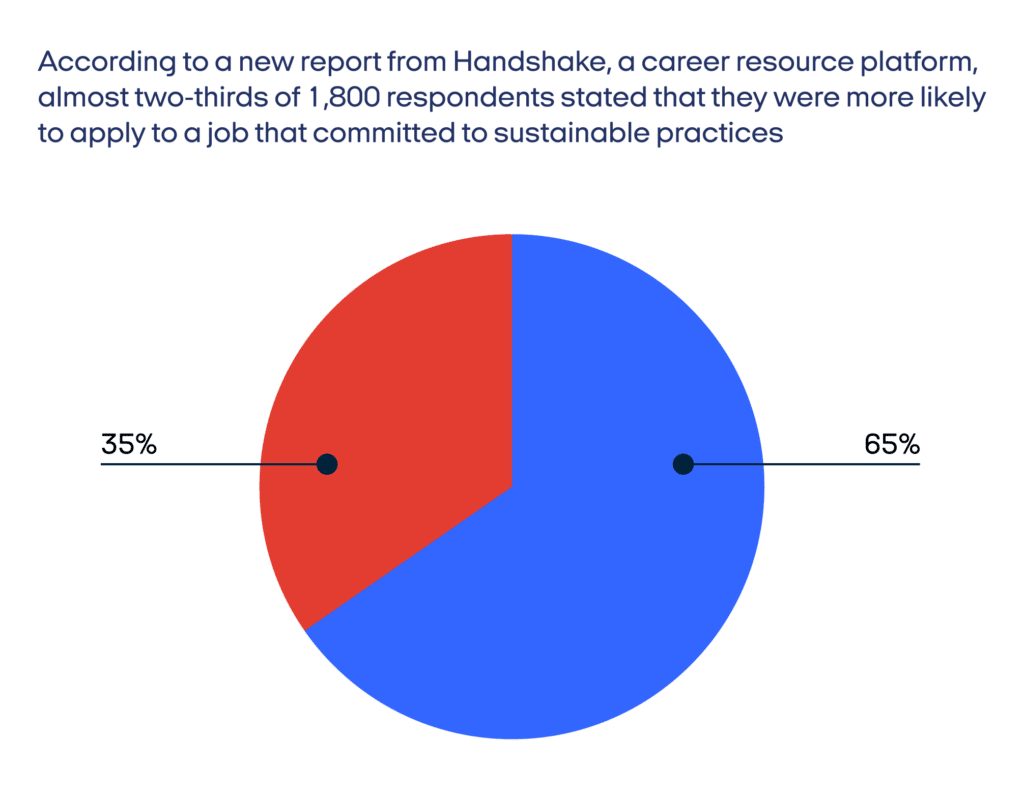
Additionally, according to GreenBiz’s Business Guide to Carbon Accounting released earlier this year, “Organizations that proactively prioritize sustainable solutions not only cultivate positive stakeholder sentiment in the short term, but set themselves up for long-term success by minimizing risk, capturing new opportunities, and gaining competitive advantage.”
As consumers and corporations grow increasingly environmentally conscious, they can make small changes like reducing their consumption of single-use packaging, implementing recycling and composting programs, or instituting “bring-your-own-bottle” policies.
Another one of those steps is switching from single-use bottled and canned water to a Bevi machine. The bottled beverage industry is arguably the most environmentally wasteful industry in the world as billions of plastic bottles get produced every year in the U.S. alone. Bevi’s mission is to change the beverage supply chain from the inside out, offering a more environmentally friendly method for providing high-quality beverages.
Since its founding in 2013, Bevi machines have displaced the waste of over 300 million plastic bottles and cans, and each machine saves an average of 30,000 bottles per year. By providing quality, flavored water in the spaces people frequent most often, Bevi machines significantly reduce the amount of single-use bottles and cans used across offices and commercial spaces—a mission that will only grow in importance in 2023 and beyond.
Only time will tell
Hybrid and flexible work, employee happiness, and sustainable business practices are three important trends that will guide the future of work in 2023. While we wish we had a magic eight ball, only time will tell what the next year truly holds. What predictions and trends do you foresee for the future of work both next year and beyond? Share your thoughts with us on our Facebook, Instagram, Twitter, or LinkedIn!
